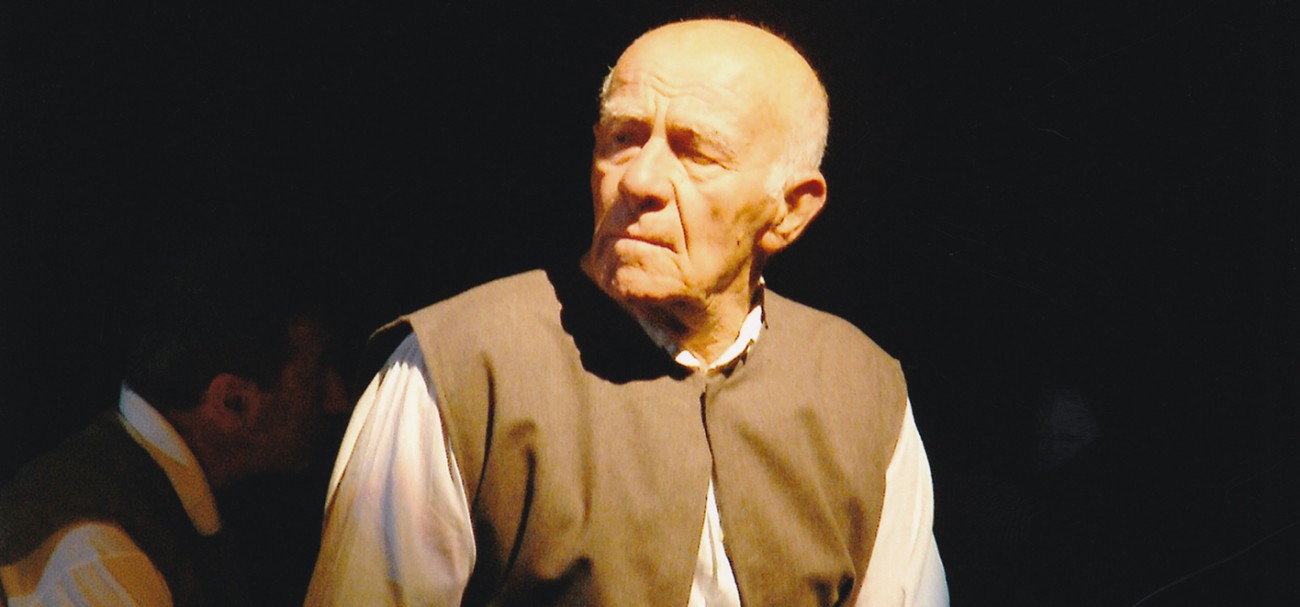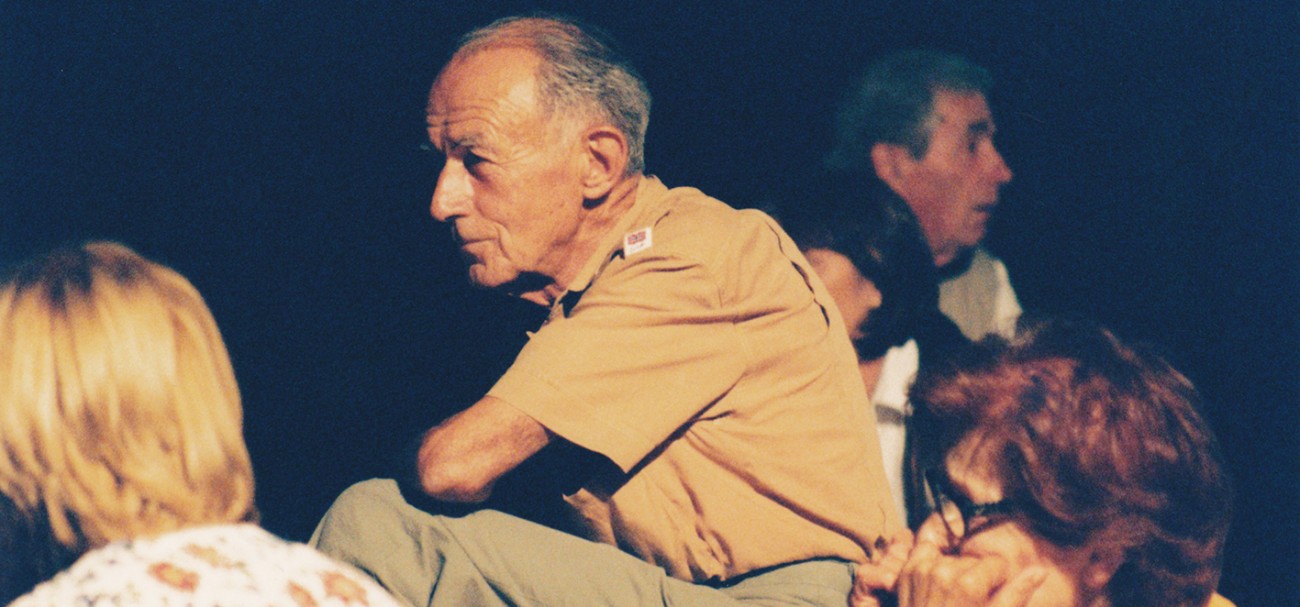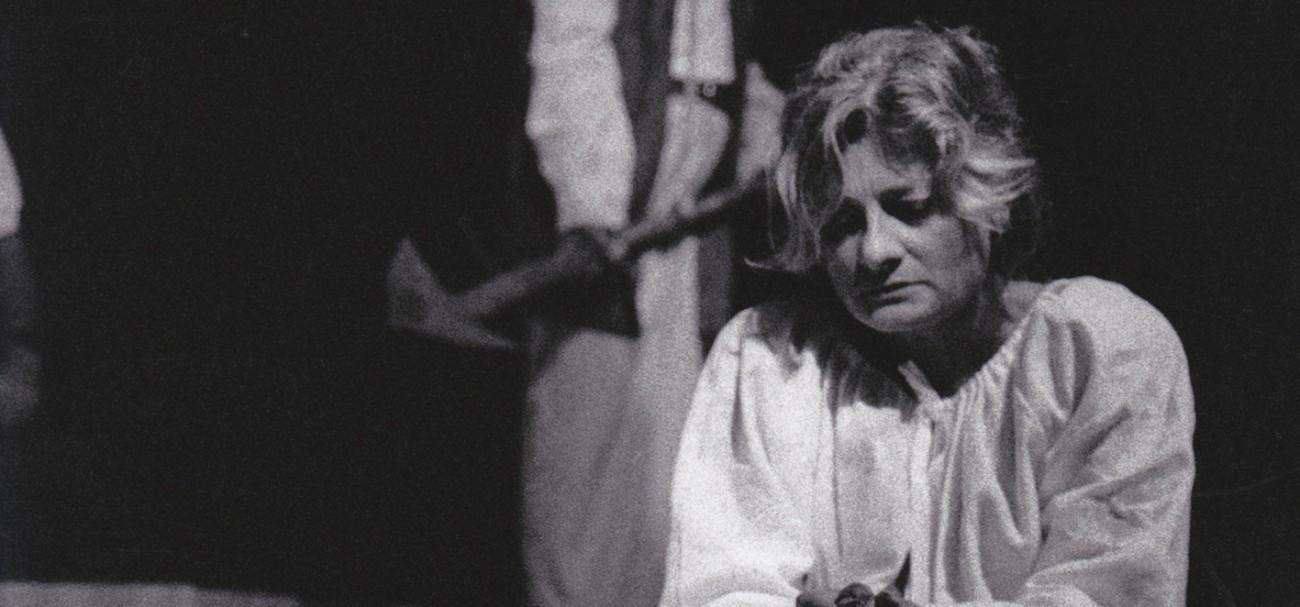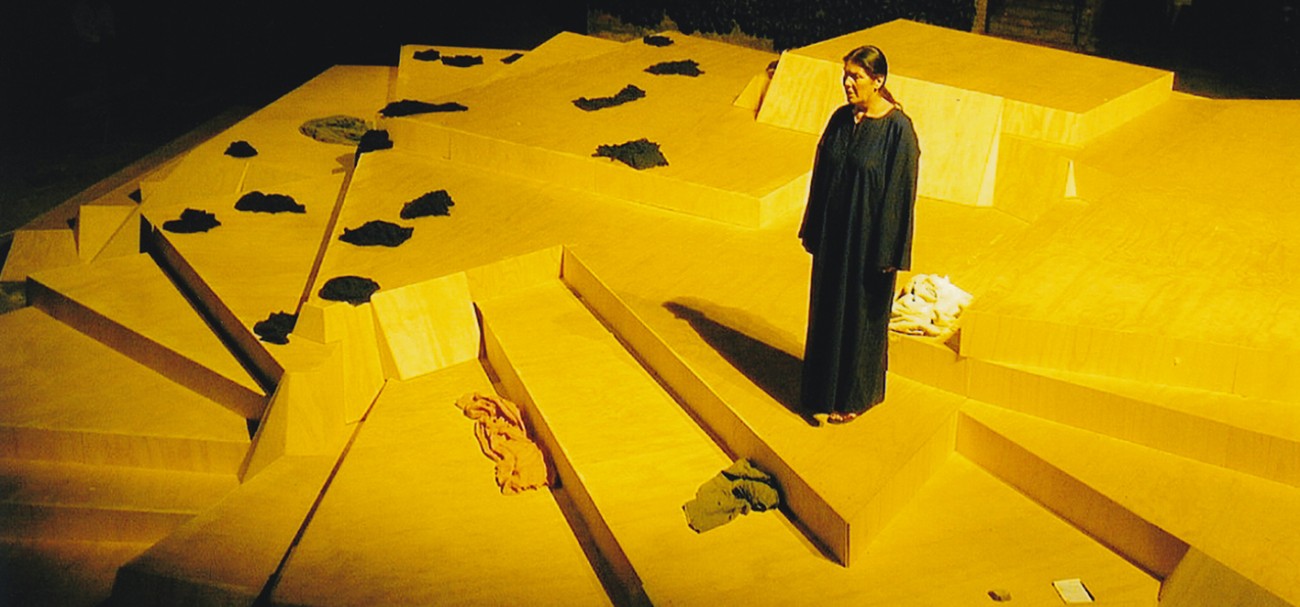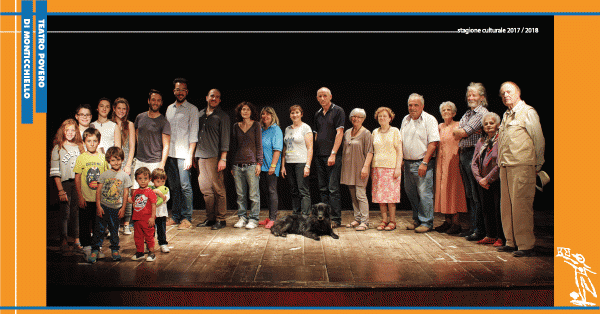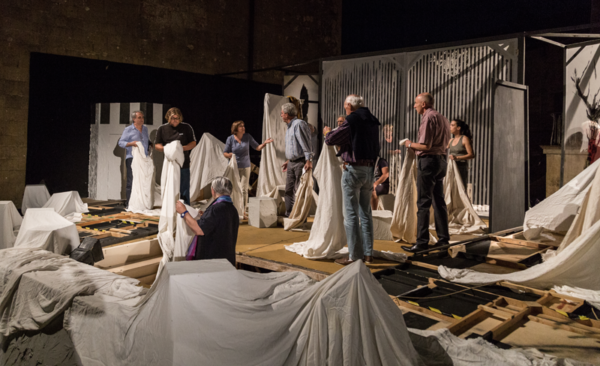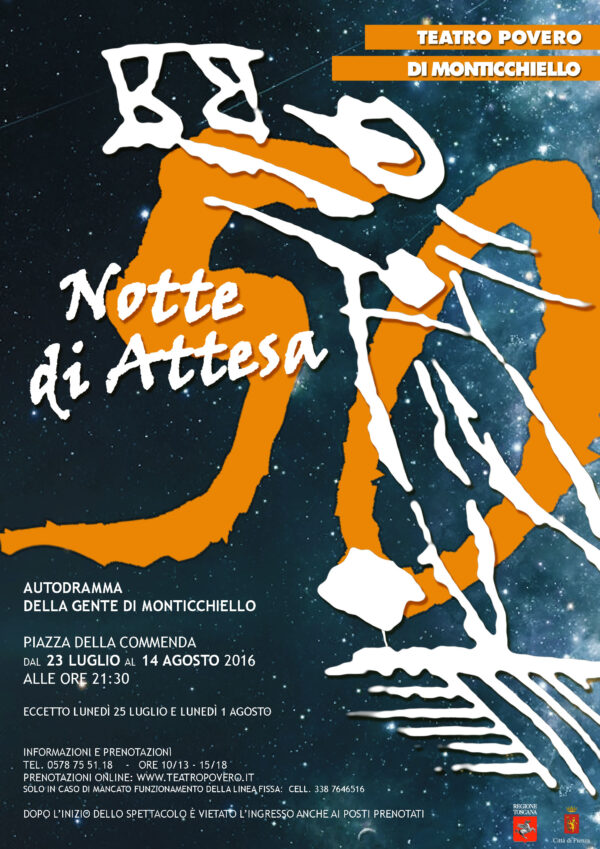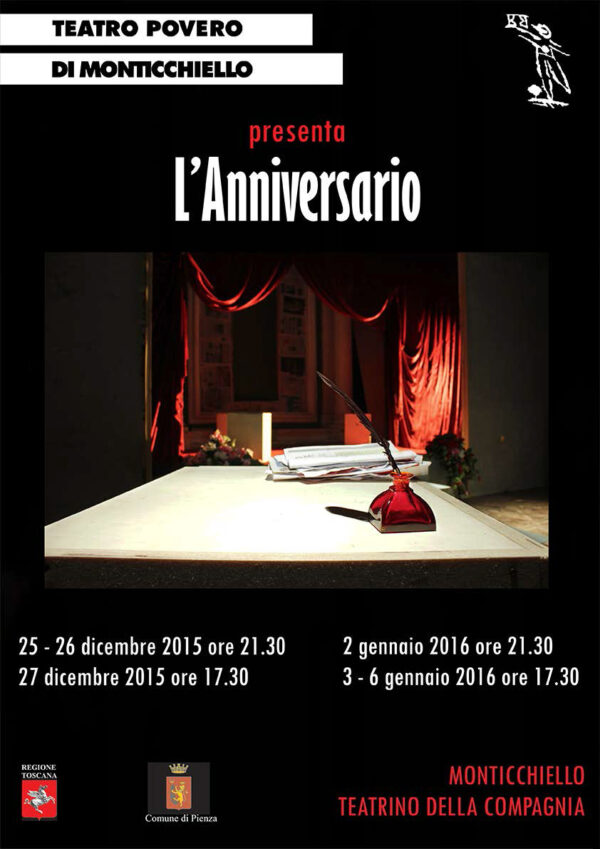The 2003 autodramma followed on explicitly from that of the previous year, and established the story or theme of a ‘siege’ as a central metaphor for the predicament of a village surrounded by an invading modern society which threatened to destroy it—or, alternatively, promised to rescue it from its isolation.
A series of different motivations lay behind this play After a second Gulf War, Monticchiello felt impelled to investigate the sufferings and disruption of war as such, as it did also in the autodramma of 1991. The village’s own memories of such disasters include the upheavals of World War II; but they also went right back to the time when the ‘War for Siena’ involved Monticchiello as a frontier garrison of the Sienese Republic. Then, intruding on these thoughts, came the fact that in 2003 the ‘casa-famiglia’, the refuge in the village for patients discharged from mental hospitals, was closed down: the opening of this facility had been contemplated by the Teatro Povero in 1989.
A complex script, set in many different time-frames (or in all periods at once), dramatized questions of forced entry and forced exit to and from a small community, always under the pressure exercised by conflict, war, crisis, or oppression. The play expressed the revulsion, but also the potential fascination, inspired by war and violence. It culminated in what seemed to be an act of surrender, but might also be an act of defiance.


